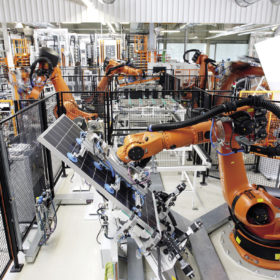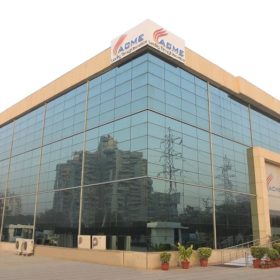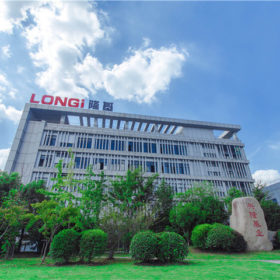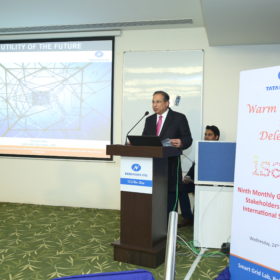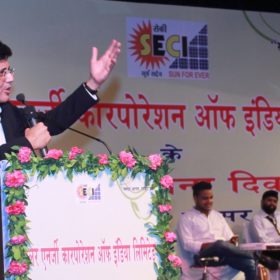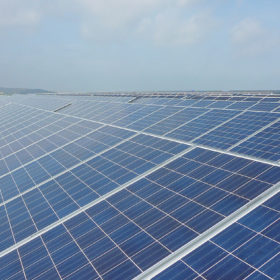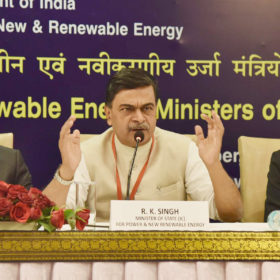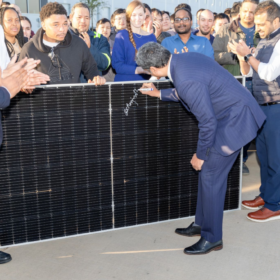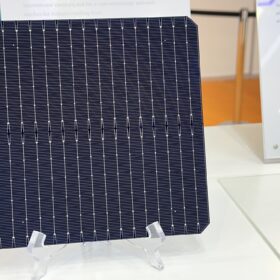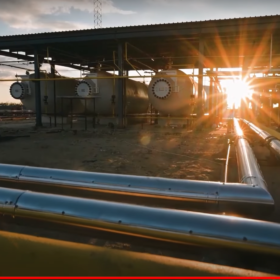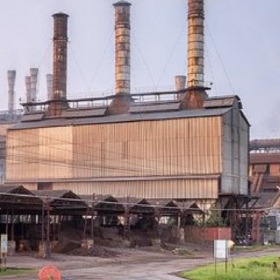An arm and a leg
Robotics in PV: The momentum of China’s solar growth appears unstoppable, driving the hunger for faster, qualitative automated solutions for the domestic PV manufacturing industry. Thus, most new solar manufacturing facilities or production upgrades are equipped with nearly fully automated lines.
Topaz Solar plans 1.2 GW solar module, 500 MW cell manufacturing fab in Odisha
As a first phase, Topaz Solar Private Limited has said it will set up a 500 MW solar PV module manufacturing facility in India’s northeastern state of Odisha. It will seek to increase this capacity by another 700 MW, and add 500 MW of cell manufacturing under a second phase.
ACME Cleantech plans 2-3 GWh lithium-ion battery manufacturing by 2020
Clean energy solution provider ACME Cleantech is planning to expand its current li-ion production capacity of 350 MWh to as much as 3 GWh by 2020. The company has also designed a charging plus swapping station for li-ion batteries to provide clean transport solutions.
China’s LONGi doubles Indian solar manufacturing plans to 2 GW
LONGi Solar has upgraded its Indian project, and now the solar manufacturer will set up 1 GW each for monocrystalline cell and module manufacturing capacity at the fab in the Indian state of Andhra Pradesh.
Tata Power unveils $2.25 million smart energy incubation hub
Delhi DISCOM, Tata Power Delhi Distribution Limited (TPDDL) is planning to launch the Tata smart energy incubation hub. The Tata trust will provide INR 150 million ($2.25 million), while the Indian government’s Science & Technology department will pay out an undisclosed sum. The company is also planning the installation of a 10 MW Battery Energy Storage System (BESS).
China’s Longi Solar confirms 1 GW Indian manufacturing facility
Longi Solar will set up a 1 GW solar PV manufacturing facility in India’s Andhra Pradesh. It will manufacture 500 MW of cells and 500 MW of modules, a spokesperson tells pv magazine. The facility is expected to be commissioned by Q1 2019 at the latest, and will seek to take advantage of India’s exemption from the recent U.S. solar tariffs, imposed by President Trump last week.
SECI postpones 2 GW tender and extends solar manufacturing EoI deadline
The Solar Energy Corporation of India has postponed the 2 GW PV project tender until further notice. The company has also extended the deadline for expression of interest for setting up the solar manufacturing plant in India until January 29.
Tesla begins production of Solar Roof tiles at New York gigafactory
The company also says that it has begun installation of the Solar Roof on the homes of non-employee homeowners.
GST leads to 12% increase in solar project costs – AISIA
All India Solar Industries Association (AISIA) has urged the government to remove the Goods and Services Tax (GST) from the balance of systems for solar equipment. The association said that components like inverters, cables and transformers under GST are charged at 5-8%. Previously, they were charged 2% central sales tax and no excise duty.
Indian solar policy roundup 2017
MNRE head RK Singh delivers a lowdown on India’s current solar installations, recent policies that the government has initiated, and the customs issues with imported solar modules.
